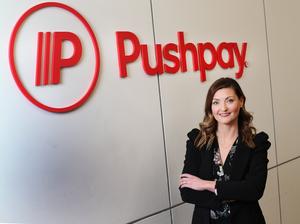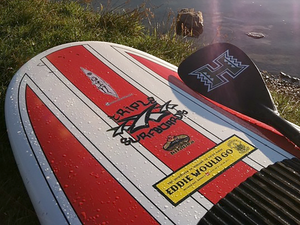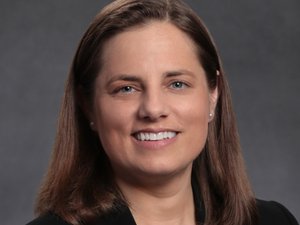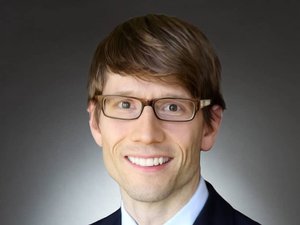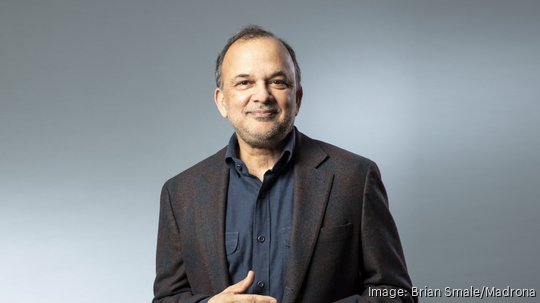
Steve Singh took his company to a new level by tracking someone down at the Newark, New Jersey airport.
In 2002, Singh was the CEO of Concur, the Bellevue-based expense management company he co-founded in 1993. He had noticed that ADP was offering its software in a more accessible manner similar to what is now called software-as-a-service, or a licensing model where software is centrally hosted rather than being on-premises. Singh wanted to learn from ADP.
After calling Russell Fradin, an executive at ADP at the time, and getting politely pushed away by an assistant, Singh learned when Fradin would be at the Newark airport should Singh happen to run into him. Singh was in New York, so he canceled his afternoon meetings, bought a plane ticket and found Fradin.
“I sat down at the gateway there and said, ‘Hey Russ, my name is Steve. I’ve been trying to reach you.’ He goes, ‘Yeah, I know who you are,’” Singh said. “We struck up enough of a friendship that I actually asked him to join our board. He was on our board for seven or eight years. Literally, he helped me pivot the business.”
Singh never used his plane ticket, but he did grow Concur into a roughly 5,000-person company that sold to software giant SAP for $8.3 billion in 2014. After staying at SAP for close to three years and leading developer tool Docker as CEO for about two years, Singh joined Seattle-based Madrona Venture Group as a managing director. His office overlooks Elliott Bay. A picture of the Concur founding team popping champagne sits on his wall, as do glass placards with the names of his current portfolio companies.
The Business Journal spoke with Singh about his career, his role at Madrona and how a five-hour dinner in Philadelphia helped pave the way for the Concur deal.
Steve Singh
Managing director at Madrona Venture Group
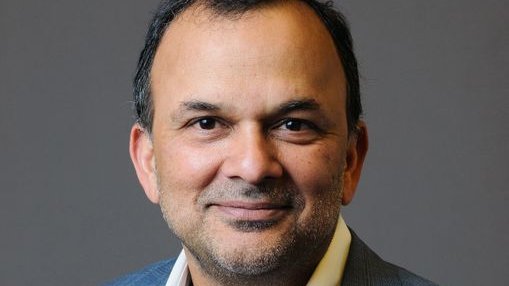
- Age: 62
- Hometown: Detroit
- Residence: Bellevue
- Education: “I attended the University of Michigan and didn’t graduate. … I ended up taking a job at a company that was a division of Apple called Claris.”
- Interests outside of work: Biking, golf, dinners/wine/conversation with friends
Day in the Life
We asked Steve to break down his typical workday
- 5 a.m. — Wake up, tea and final prep work for the day ahead
- 7 a.m. — Hang out with Jack (our dog)
- 7:30 a.m. to 6 p.m. — Combination of topic-specific deep dives at the companies where I serve on the board, mixed with sales calls, partner calls and recruiting calls
- 6:30 p.m. — Some exercise
- 7:30 p.m. — Dinner and wine with friends and family
How did you end up at Madrona after Concur and Docker?
I basically sat around and did the same thing that everybody always does. You start to get fit. You start to pick up a hobby. You clean the house, clean the garage. After three months, I go, “OK, I’m done with all that. Now what do I do?” The Madrona team is pretty cool. I’ve known them all for a lot of years. What I knew was that I didn’t want to go back to running a company. It’s a young person’s game, and the amount of effort it takes is more than I want to put in at this stage of my life.
What was appealing about venture capital?
When people are motivated to solve problems, where they also get a benefit from it, they’re going to solve those problems, and they typically solve them really well. Obviously, they have to have great values and a great set of ethics, but capitalism really is an incredible growth engine for jobs, opportunities and solving problems. I was looking for something that allowed me to focus on that area.
What’s challenging about allocating venture capital?
The level of understanding of a particular topic is much deeper than if you’re investing in the stock market or investing your assets for retirement or things of that nature. You have to dig in. I need to understand where technologies are going. I need to understand the business problems. ... That’s the beginning of it. The next thing is does that human being have the tenacity, the humility, the inquisitive nature to continue to learn and solve. Because 90% of what you assume in the very beginning is wrong.
What was the process like of selling Concur?
We looked at it and said if we could go execute on our own for the next two years, here is what we think we could do. Based upon a multidecade average of multiples, this is what the business is worth. We got into a really good discipline every year, we would look at it and say this is what our business could be worth over the next two years based on our operating plan. ... (SAP) got close the first time, but we were off by $3 (per share), and I said I can’t do this.
How did you eventually get to an agreement?
(Former SAP CEO) Bill (McDermott) and I grabbed dinner in Philly. It was a five-hour dinner, a long dinner. We came in at 6, and by the time we were done, there was nobody left in the restaurant. We got close. We got to $125 (per share). I said, “I’ve told you my number is $130. I’m not going to do this.” My board was telling me you’re crazy and you should do this. As we were leaving, I said, “I’m taking a long overdue vacation.” We have a place in Hawaii, so I was headed there. I just needed a week off. As we were leaving he said, “The maximum I can get to is $128.” I told him, “I’m not going to get there. Maybe the board will overrule me, but I can’t get there, and I’m not going to support it.”
And then what?
We shook hands. I left. Two days later, he calls me in Hawaii and goes, “I can’t get to $130.” We said we’ll split the difference at $129, and we came to an agreement. It’s that discipline of knowing exactly what you’re worth, and how you justify what you want to the point that it’s unassailable.
This interview has been edited for length and clarity.
